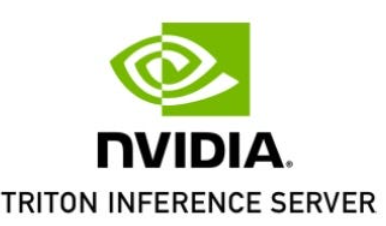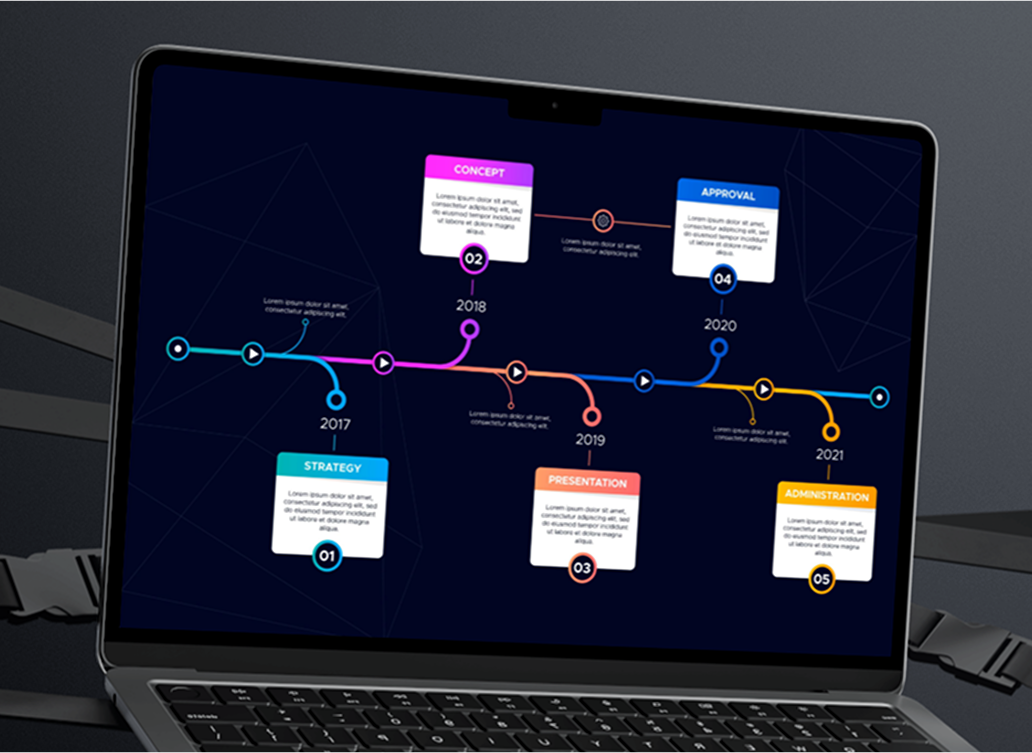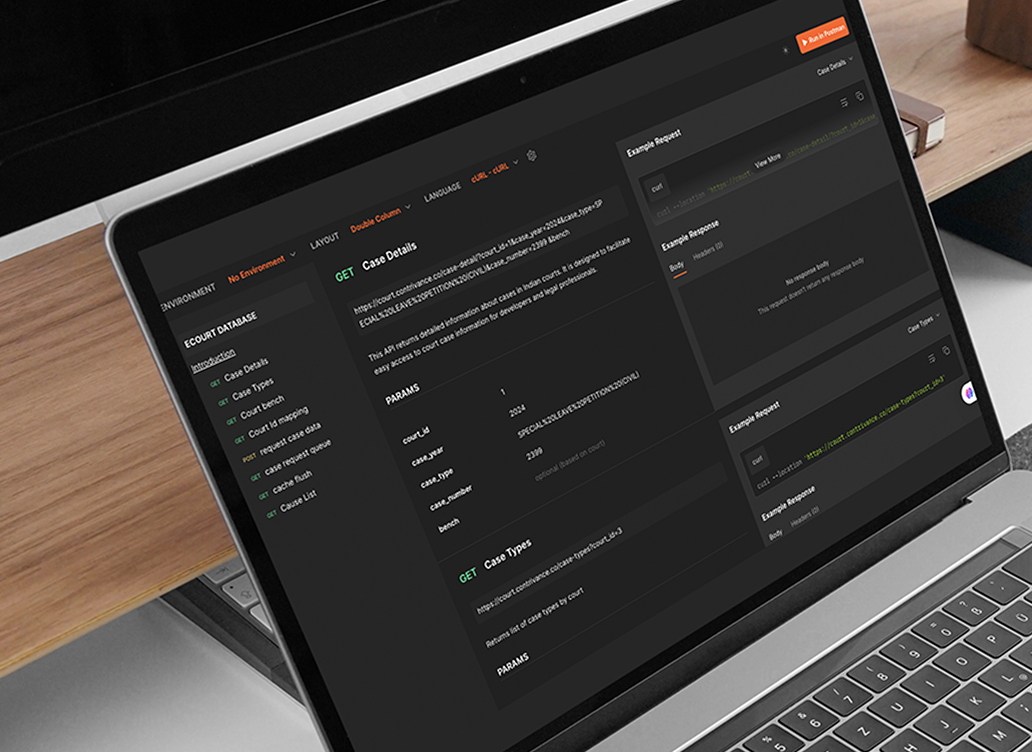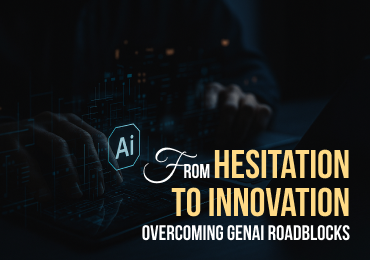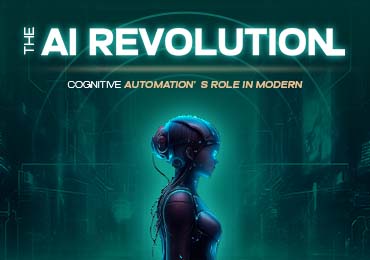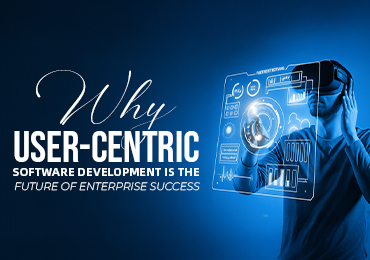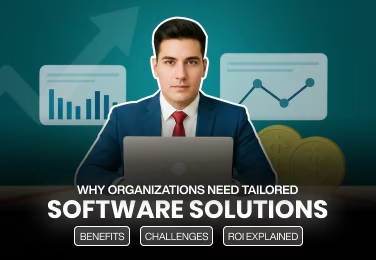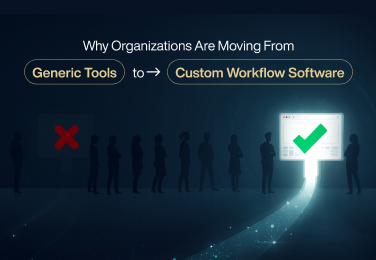From Hesitation to Innovation: Overcoming GenAI Roadblocks
Generative AI or GenAI has emerged as a transformative force, providing businesses with unmatched opportunities for unparalleled innovation, efficiency, and long-term competitive edge. Despite its immense potential, the adoption of generative AI in business often stumbles upon certain roadblocks – ranging from organizational resistance to technical limitations and skills gaps. In this analysis, we are highlighting the key challenges to implementation and presenting result-yielding AI adoption strategies to help businesses champion these hurdles and unlock the optimum potential of GenAI. Identifying the Major Roadblocks to Generative AI Adoption While generative AI in business holds the promise of efficiency, scalability and innovation, its widespread adoption faces a number of critical roadblocks. Organizations across industries are facing both strategic and technical hurdles that are slowing down or even stalling implementation. Below is a breakdown of some of the most pressing barriers to AI adoption, along with supporting data to highlight their overall significance – Lack of AI Skills and Expertise Many businesses lack the in-house skill sets required to deploy, develop, and manage generative AI systems effectively. A notable percentage of organizations have cited this skill gap as a major inhibitor—especially when it comes to the specialized talent needed for implementation and integration. Data Privacy and Security Concerns The advanced generative AI models thrive on data, but that same reliance raises some serious concerns over security and privacy—particularly when sensitive business information is involved. For many organizations, these concerns are one of the major reasons for delaying AI initiatives. Trust and Transparency Issues One of the most impactful yet intangible drawbacks is a smattering of trust in AI-generated outputs. Unpredictability, lack of explainability, and potential bias contribute to skepticism about whether generative AI can support accurate and genuine business decisions. Integration and Scaling Challenges Integrating cutting-edge generative AI tools into the already existing legacy systems could often be a complex, resource-heavy endeavour. Many organizations report significant challenges in scaling AI capabilities across a multitude of departments or functions. High Implementation Costs The upfront costs of artificial intelligence—ranging from training to infrastructure—can be overwhelming, especially for small and medium-sized businesses. Budget constraints often make it difficult to justify initial investments, even when long-term ROI is promising. Ethical Concerns Concerns around bias, misleading information, and the ethical use of AI-generated content are very authentic. Questions about job displacement as well as responsible AI practices continue to redefine how or when businesses move forward with adoption. Data Complication Even when organizations have access to incredibly vast amounts of data, making that data highly usable for artificial intelligence can be a different hurdle altogether. Issues such as inconsistent formats, poor data quality, and lack of governance create serious hurdles for effective model deployment and training. Executive Reluctance and Cultural Resistance Leadership buy-in is important for any kind of digital transformation. However, there are many executives out there who remain a bit skeptical of generative AI, citing fear and unfamiliarity of disrupting their already existing workflows. Without top-notch support, AI initiatives may often lose momentum before they start off. A Few More Considerations for Effective GenAI Adoption In addition to understanding some of the key obstacles, enterprises should also account for a range of strategic factors, which can heavily influence the success of their Generative AI strategy. These additional considerations help businesses not just implement AI effectively but also sustain long-term value creation – Timeframe for Real ROI Most of the organizations require 12+ months to witness tangible ROI from Generative AI. Long-term strategies and commitment are imperative for sustained success. Tailored, Function-Specific Implementation The impact of GenAI varies across functions—top adopters include operations, IT, marketing, and customer service. user-centric strategies for every department boost effectiveness and integration. Addressing Workforce Resistance Employee resistance due to trepidation or unfamiliarity could delay implementation. Provide pilot programs, hands-on training, and early engagement to build confidence and alignment. Preparing for Agentic AI Risks Initiate with low-risk use cases for autonomous AI applications. Make investment in robust cybersecurity, data governance, and compliance to manage risk. The Final Words By addressing these hurdles through targeted strategies, modern enterprises can navigate through the complexities of generative AI adoption and unleash its full potential for further innovation and growth. The key lies in developing skill sets, managing costs effectively, ensuring compliance, and fostering a culture that embraces growth-yielding change. With a strategic approach, businesses can turn these challenges into opportunities for transformation. We love to hear from you Contact Us




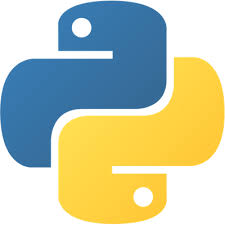












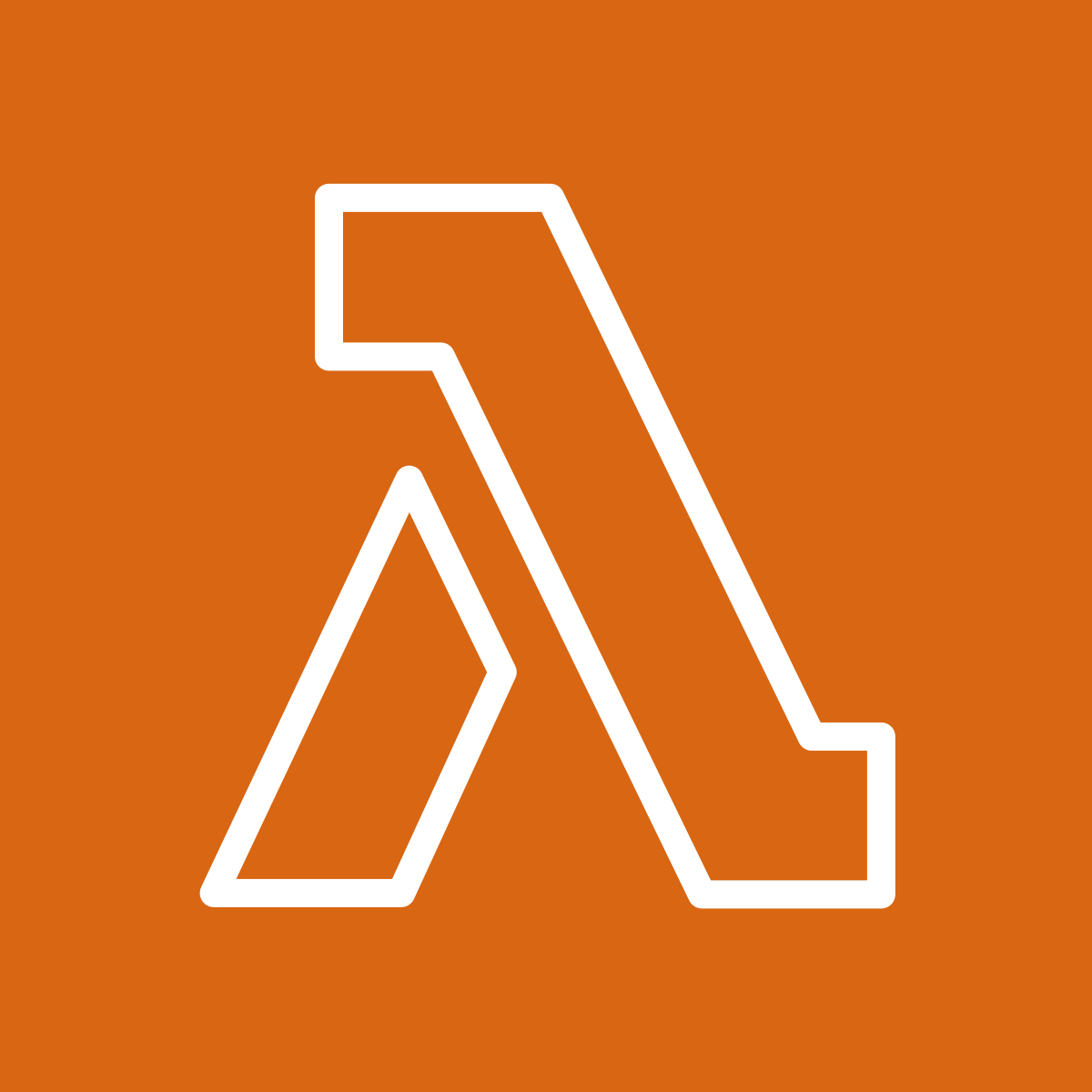
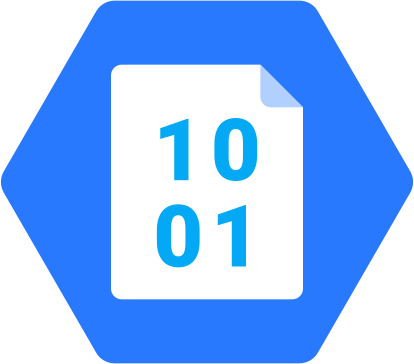






 AI Technology Stack (Layer by
Layer)
AI Technology Stack (Layer by
Layer)





























